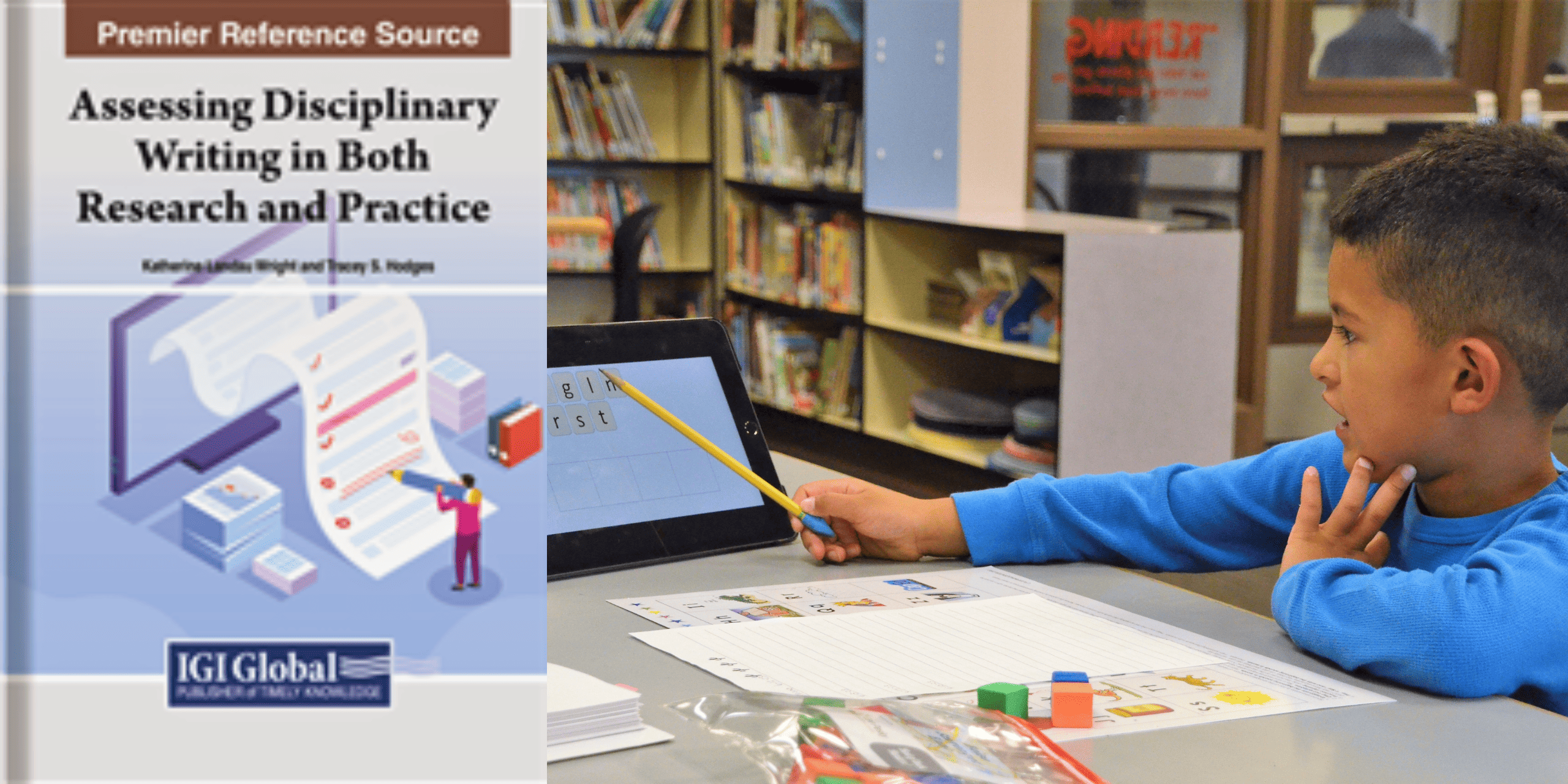Boise, Idaho— This past August 2023, Lee Pesky Learning Center’s Grants Manager Dr. Tracey Hodges co-edited a newly released book: Assessing Disciplinary Writing in Both Research and Practice. LPLC Executive Director Dr. Lindy Crawford and Educational Specialist Ashley Rowe, as well as Dr. Tracey Hodges, were contributing writers.
The ability for young children to communicate effectively and reach their career goals in the future requires skill building in specific content areas. Assessing Disciplinary Writing in Both Research and Practice tackles the challenge of measuring children’s writing skills across content areas including, but not limited to, subjects such as English, writing, science, social studies, and math. The intent of this publication is to elevate the quality and effectiveness of writing instruction across these content specific areas. Additionally, this book will advance education research and application of best practices in the classroom.
Dr. Lindy Crawford and Ashley Rowe wrote Chapter 5 alongside co-authors Sarah Quebec Fuentes and Jacqueline Huscroft-D’Angelo. This chapter–Framework for Evaluating Written Explanations of Numerical Reasoning—examines the importance of communication specifically in mathematics. Encouraging students to share their thought process provides an opportunity to examine the ‘why’ of mathematical knowledge.
Dr. Tracey Hodges wrote Chapter 7 alongside co-authors Dr. Katherine Wright, Dr. Julianne Wenner, and Dr. Erin McTigue. In this chapter, entitled The Rubric for Scientific Writing: A Tool to Support Both Assessment and Instruction, the authors create a rubric that assesses science content and writing skill in parallel. Pulling data from 75 middle and high school writing samples, the chapter demonstrates the necessity of using measures that yield valid and reliable scores in order to help students construct scientific arguments.
According to lead Co-Editor Dr. Tracey Hodges, “Writing to communicate information, argue, or persuade is challenging, yet students can develop this important skill while learning across all school disciplines. The contributors and editorial board who provided their expertise in this edited volume bring nuance, innovation, and potential solutions to the ways we assess students in complex writing practices. I am excited to share this research compilation as a step toward helping students become more confident and motivated writers.”
Additional information about Assessing Disciplinary Writing in Both Research and Practice can be viewed online here.



